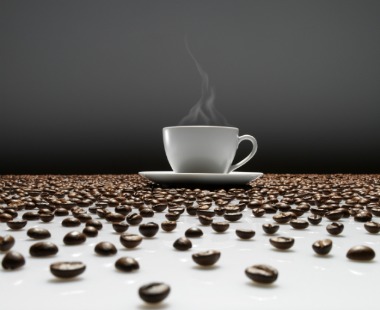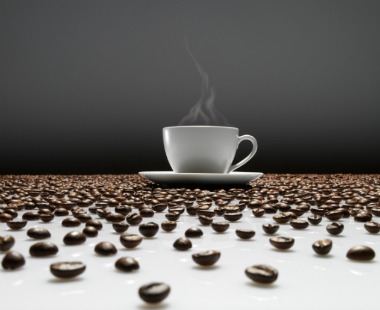Send your question to Umbra!
Q. Dear Umbra,
I work in an office of serious coffee drinkers. We have a Keurig single-cup coffee brewer that everyone loves because it allows them to choose their own roast and flavor. But all those little plastic K-Cups add up to lots of waste fast! Is there a more sustainable alternative I can recommend?
Christine Coolick
Cleveland, Ohio
 Don’t be a drip — brew your coffee sustainably.A. Dearest Christine,
Don’t be a drip — brew your coffee sustainably.A. Dearest Christine,
Ah, yes. We here in the Grist office are serious about our java too (although we just have an old-fashioned coffeemaker). Whenever I emerge from the stacks, jonesin’ for caffeine or just human interaction, I bump into other devoted pilgrims worshipping at the temple of the bean. With an eye-popping 237 options for quick single-serve hot drinks, Keurig machines and their ilk are a magnet for caffeine-craving souls of every creed. It’s no wonder they’ve caught on so, with net sales recently shooting up 131 percent.
The problem, as you noted, is the K-Cups, and how they contribute to our throwaway culture. Each wee plastic cup has a filter sealed inside by an aluminum foil lid. “The polyethylene coating of the foil — as well as the process of heat-sealing the various elements — makes recycling difficult,” says Keurig. So not only are millions of K-Cups being manufactured, transported, and used every day, but after about 60 seconds, they’re destined for the landfill.
What a coffee conundrum. “Does it make sense to put fair-trade coffee in a disposable petroleum-based package?” asks writer Lillian Laurence. Indeed, it’s a bit puzzling. Why would Keurig, whose corporate mothership is the fair trade and organic coffee company Green Mountain Coffee Roasters, sell a product that creates so much waste? (The irony was not lost on The New York Times last year.)
Keurig admits the problem in its site’s “sustainability” section, saying “We understand that the impact of the K-Cup® Portion Pack waste stream is one of our most significant environmental challenges.” The company gets Happy Bean Points (which, yes, I am inventing right now) for fessing up to the issue and being upfront with customers — the maker of those tiny disposable creamer cups could learn a thing or two! — but gets Sad Bean Points for still not having a solution.
What should you do in the meantime?
I wrote about K-Cups once before but was more focused on instigating change in one’s office by banding together with other coworkers and advocating for a reusable filter. Indeed, said reusable filter may be your greenest option, as it does not involve trashing your Keurig machine or buying a new coffeemaker. If your coworkers can be persuaded to keep their gourmet grounds of choice in the office kitchen, they can still brew their favorite obscure Italian roasts, just with a little more effort. (There’s also that little thing called the French press.)
But if convenience (or individuality) is key, the next best option may be biodegradable coffee pods, seemingly the main threat to the K-Cup. Italian company La Piccola sells single servings of seven Italian brews in “a biodegradable paper puck” (appetizing, right?). The New Hampshire Coffee Roasting Co. also apparently sells compostable coffee pods, which one blogger figures create 86 percent less waste than K-Cups. Reunion Island is another purveyor of the coffee pod, going so far as to create 96 percent less trash than K-Cups and use all green electricity. I’m a bit skeptical that every coffee pod will end up in a nice steamy compost heap as its proponents would have you believe, but at least less petroleum and plastic is involved — and one has to stay awake at work somehow.
Joltingly,
Umbra



